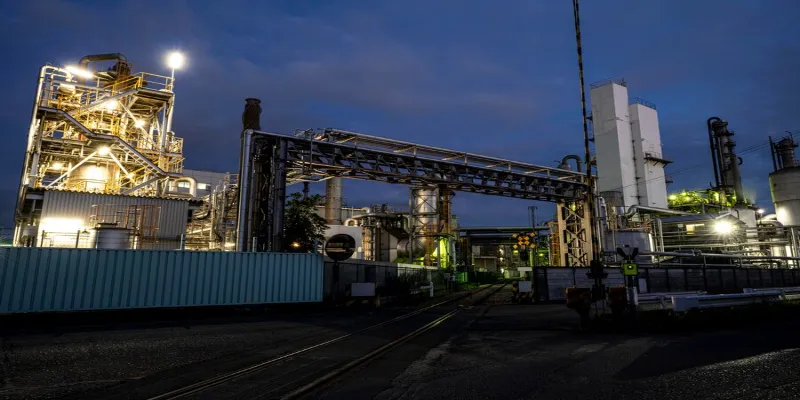
Mexico's petroleum industry, once the world's second-largest oil producer in the early 20th century, finds itself at a critical juncture today. Despite its rich history as a major player in the global oil market, the industry now faces significant challenges, including declining production rates and shifting global energy demands. As a result, the sector is undergoing a major transformation, addressing the need for technological advancement, environmental sustainability, and economic diversification. This transition is aimed at revitalizing Mexico's petroleum industry and aligning it with the modern energy environment, ensuring its relevance and sustainability in the years to come.
Mexico's Historical Dominance in Petroleum Industry
Petroleos Mexicanos, commonly known as, has been the cornerstone of Mexico's oil industry since its nationalization in 1938. This pivotal move placed the vast majority of Mexico's oil reserves under state control, ushering in a period of significant growth and prosperity. For decades, PEMEX served not only as a symbol of national pride but also as a powerful economic engine, driving the country’s development with its extensive oil outputs.
The economic impact of this dominance is profound; Mexico's economy has historically been heavily reliant on oil revenues, which have funded a substantial portion of government spending. The contributions of the oil sector have been instrumental in developing infrastructure, education, and health services across the nation. However, this dependence on oil has also rendered the country vulnerable to fluctuations in oil prices, often leading to economic instability during periods when oil prices are low.
Challenges and Reforms
Mexico's petroleum industry, once a symbol of prosperity and national pride, faces a series of challenges that have necessitated significant reforms to secure its future viability and sustainability. Here's a deeper look into the ongoing struggles and the strategic responses aimed at revitalizing this crucial sector.
-
Declining Production: The Factors Leading to Decline
The majority of Mexico's oil production comes from offshore oil fields in the Gulf of Mexico, with the Cantarell Field historically being one of the largest. However, in recent years, Mexico's oil production has seen a significant decline. This downturn is attributed to a variety of factors, including aging oil fields, lack of investment in exploration and technology, and operational challenges within PEMEX. The decline in production has raised concerns about the long-term sustainability of relying so heavily on oil as a primary source of revenue. -
Energy Reforms: Opening to Private Investment
In response to declining production and the need for modernization, Mexico implemented sweeping energy reforms in 2013. These reforms ended PEMEX's monopoly over the Mexican oil industry, opening it up to private and foreign investors for the first time in over 75 years. The goal was to attract new technology and capital to revitalize the industry, improve efficiency, and increase production through partnerships and private investment. -
Social and Environmental Considerations
The expansion of the oil industry in Mexico has not come without its challenges. Social unrest has occasionally erupted in regions where oil production is prevalent, often driven by issues of land use, displacement, and local benefits. Environmental concerns are also at the forefront, as oil extraction and processing have led to pollution, habitat destruction, and other ecological impacts. These issues necessitate a balanced approach to oil production, one that considers both economic benefits and social/environmental costs.
Together, these factors illustrate the complex landscape of Mexico's oil industry as it navigates through its historical legacies and current challenges towards a more diversified and sustainable future.
Here must read: Automotive Industry in Mexico
Opportunities and Uncertainties
As Mexico's petroleum industry undergoes a transformative era marked by reforms and new policies, the scene presents both promising opportunities and notable uncertainties. These changes aim to enhance the industry's sustainability and economic impact while adapting to global energy trends. Here’s a detailed exploration of these pivotal aspects:
-
Foreign Investment
The opening of Mexico's oil industry to foreign investment represents a watershed moment with significant potential benefits. Foreign capital can bring advanced technologies and practices that improve the efficiency, safety, and environmental sustainability of oil operations. These investments can also lead to job creation and foster a competitive market, potentially driving down costs and enhancing productivity. However, there are concerns as well. Dependence on foreign investment can make the domestic market vulnerable to global economic shifts. Additionally, there is the risk of repatriation of profits which could limit the economic benefits within Mexico. Ensuring that foreign collaborations are structured to retain substantial value within the country is crucial. -
Diversification
Mexico is actively seeking to diversify its energy portfolio beyond traditional oil and gas to include renewable energy sources such as wind, solar, and hydroelectric power. This shift not only helps Mexico reduce its carbon footprint but also stabilizes its energy supply against the volatility of oil markets. Diversification efforts include substantial investments in infrastructure and incentives for renewable energy projects, aiming to balance the energy mix and secure energy independence in the long term. This strategy is aligned with global trends towards sustainability and positions Mexico as a forward-thinking player in the global energy market. -
The Future of PEMEX
In the newly reformed market, PEMEX's role is evolving from a monopolistic national oil company to a competitive player among both domestic and international firms. The challenge for PEMEX is to leverage its extensive experience and existing infrastructure while adapting to more competitive market conditions. This requires significant internal reforms to enhance efficiency, reduce corruption, and improve safety and environmental standards. PEMEX must also focus on strategic partnerships that can provide the capital and technological input necessary to optimize its resource base and operational capabilities.
Also read: Potential in Mexico's Plastic Manufacturing Industry: Growth and Opportunities
Mexico's Petroleum Industry: Adapting to New Challenges
As Mexico transitions through this new environment, the opportunities and uncertainties presented by these changes will shape the future of its oil industry. Foreign investment, if managed wisely, can spur a period of revitalization and innovation. Diversification of the energy portfolio promises a more stable and sustainable future, reducing the nation's reliance on oil revenues. For PEMEX, the transition will be challenging but potentially rewarding, as it reinvents itself to thrive in a competitive environment. The path forward will require careful management and forward-looking policies to ensure that the benefits of these changes are realized and shared across Mexican society.
As SIXM continues to lead with innovative strategies, including product sourcing from Mexico, the industry can look forward to a future where growth is balanced with environmental stewardship and social responsibility. This approach not only enhances our operational efficiency but also aligns with our commitment to sustainable practices. Together, we are setting the stage for a prosperous and sustainable era for Mexico's petroleum sector.
Sources
A Look at the Future of the Mexican Petroleum Industry after Energy Reform.
Status of the Cantarell Field Development Program: An Overview.

